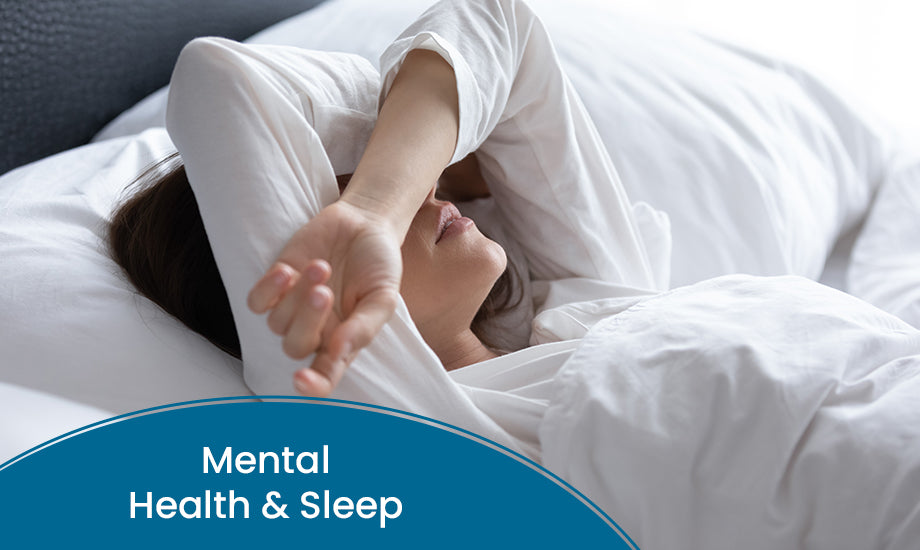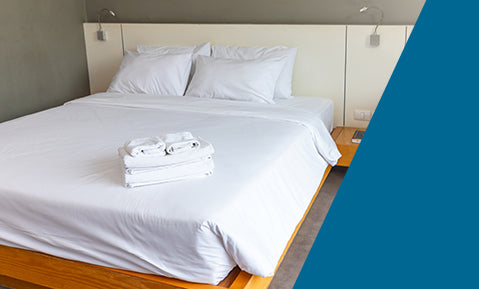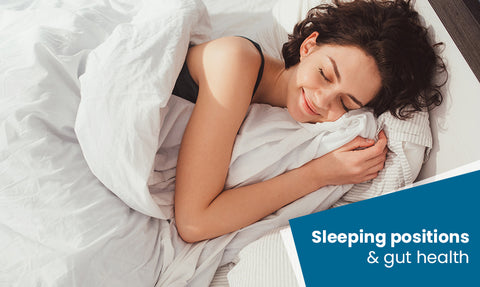
Can we live without sleeping, can we? In the 2004 psychological thriller, The Machinist, the lead actor, Christian Bale (also the title character), on account of several issues, was unable to sleep (for one good whole year). The film was critically acclaimed, and in that process, Mr. Bale, reportedly lost over 28 KG’s (62 pounds). Well, that’s merely a film, however, what happens to his mental condition and physical condition is worth even close to understanding what sleeplessness can do to us.
But the thing is, we do not have much time to get a good, happy sleep. I'm sure you know that good sleeping is very important to develop your mental health. Sleeping well is also associated with mind stability. Your mental health defines your work agility. Also, if your mental health is questionable, losing temper on anything and everything might be a daily routine. We must be aware of our mental state, mental health. Today's article is going to cover about our mental health and sleep and practical steps to look after.

So, Most people are aware of how sleep impacts their mental state. After all, there's a reason why somebody in a bad mood is said to have "woken up on the other side of the bed."
As it starts to turn out, there's a lot of truth to this common phrase. Sleep is intimately linked to emotional and mental health, with links to depressive episodes, anxiousness, bipolar disturbance, and other conditions.
While research into the links among mental health and sleep is ongoing, evidence to date suggests a bidirectional relationship. Sleeping problems are often exacerbated by mental health issues. At the same time, inadequate sleep, such as insomnia, can contribute to the onset and rapidly deteriorating mental health issues.
And If we talk about insomnia, Insomnia can have a significant impact on mental health. People who struggle with insomnia often report feeling anxious, depressed, and irritable. They may also experience difficulty concentrating and making decisions, and may be more prone to accidents and injuries. Insomnia can also interfere with daily activities and impair overall quality of life. In some cases, chronic insomnia can even lead to the development of more serious mental health conditions, such as depression and anxiety disorders.
I'm pretty sure you are thinking about, how does sleep affect your mental health, so here are some examples:
- Clouding of consciousness or mental fog
Brain fog is a common term used to describe feelings of mental confusion, lack of focus, and difficulty with concentration. It is often associated with fatigue, depression, and anxiety, and can make it difficult to think clearly and perform everyday tasks. Some people may also experience brain fog as a symptom of a medical condition, such as fibromyalgia or chronic fatigue syndrome. In these cases, brain fog can be a persistent and debilitating symptom that significantly affects a person's quality of life.
Brain fog can have a significant impact on mental health. It can cause feelings of frustration, anxiety, and low self-esteem, and can make it difficult to engage in daily activities and maintain social relationships. Brain fog can also interfere with work and school performance, and can make it challenging to complete tasks and make decisions. In some cases, the feelings of confusion and difficulty with concentration associated with brain fog can even lead to the development of more serious mental health conditions, such as anxiety and depression.

- Bad mood
A lack of sleep can cause changes in mood, including irritability, anxiety, and depression. When we don't get enough sleep, our bodies and minds don't have the opportunity to rest and recharge, which can leave us feeling drained and overwhelmed. This can make us more susceptible to negative emotions and can make it difficult to maintain a positive outlook. A lack of sleep can also interfere with daily activities and impair overall quality of life, which can further contribute to feelings of sadness and hopelessness. In some cases, chronic sleep deprivation can even lead to the development of more serious mental health conditions, such as depression and anxiety disorders.
A good night's sleep can improve mood in several ways. First, sleep gives our bodies and minds the opportunity to rest and recharge, which can help us feel more alert and energized. Second, sleep plays a vital role in regulating our emotions, and can help us process and manage our feelings more effectively. Third, sleep is important for maintaining overall physical and mental health, and can help protect against the development of conditions that can affect mood, such as depression and anxiety. Overall, a good night's sleep can leave us feeling happier, more positive, and more able to handle the challenges of daily life.
- Psychic changes
It is possible for a lack of sleep to contribute to the development of psychotic symptoms, such as hallucinations and delusions. Sleep plays a crucial role in maintaining mental health, and a chronic lack of sleep can lead to a range of psychological and cognitive problems. When we don't get enough sleep, our brains don't have the opportunity to rest and repair themselves, which can lead to changes in brain function and behavior. In addition, sleep deprivation can also cause changes in the levels of certain chemicals in the brain, such as dopamine and serotonin, which can affect mood and behavior. However, it is important to note that a lack of sleep is not the only cause of psychotic symptoms, and other factors, such as genetics and underlying medical conditions, may also play a role.

- Mood gets depressed
Sleeplessness might indirectly lead to depression. Sleep plays a crucial role in maintaining mental health, and a chronic lack of sleep can lead to a range of psychological and cognitive problems. When we don't get enough sleep, our bodies and minds don't have the opportunity to rest and recharge, which can leave us feeling drained and overwhelmed. In addition, a lack of sleep can also interfere with daily activities and impair overall quality of life, which can further contribute to feelings of sadness and hopelessness. In some cases, chronic sleep deprivation can even lead to the development of depression.
- You will forget your eating schedule
Sleeping disorders can cause a variety of problems, including eating disorders. Lack of sleep can lead to hormonal imbalances, which can affect hunger and satiety signals in the body. This can cause a person to either overeat or undereat, leading to weight gain or weight loss. Additionally, lack of sleep can also cause changes in mood and energy levels, which can lead to changes in behavior, including food choices and eating habits.
Moreover, Eating disorders are complex conditions that are often caused by a combination of factors, including biological, psychological, and social factors. While there is no one specific cause of eating disorders, research has shown that sleep problems can be a contributing factor. Lack of sleep can cause hormonal imbalances that can affect hunger and satiety signals in the body, leading to changes in eating habits and food choices. Additionally, lack of sleep can also cause changes in mood and energy levels, which can affect a person's behavior, including their relationship with food.
Now what to do?
Maintaining good mental health is an important part of achieving good sleep. Some ways to improve your mental health and promote better sleep include:
Creating and adhering to a regular sleeping routine. Going to bed and waking up at the same time every day can help regulate your body's internal clock and improve your sleep quality.
Creating a relaxing bedtime routine

A relaxing bedtime routine, such as taking a warm bath, listening to calming music, or reading a book, can help you unwind and prepare your body for sleep.
Practicing relaxation techniques. Techniques such as deep breathing, meditation, or progressive muscle relaxation can help reduce stress and anxiety, which can interfere with sleep.
Avoiding caffeine, alcohol, and nicotine close to bedtime. These substances can interfere with sleep and disrupt your sleep patterns.
Creating a sleep-friendly environment. A dark, cool, and quiet bedroom can help promote better sleep.
Exercising regularly

Regular physical activity can help improve your overall health and promote better sleep.
Managing stress and anxiety. Finding healthy ways to manage stress and anxiety, such as talking to a therapist or counselor, can improve your mental health and promote better sleep.
Avoiding screens before bedtime. Screens' blue light can prevent your body from producing melatonin, a substance that stimulates control of your sleep-wake cycle.
Seeking help if you're experiencing sleep problems. If you're having trouble sleeping, talk to your doctor or a mental health professional. They can help you identify the underlying cause of your sleep problems and provide appropriate treatment.












